Recyclability and recycling

Placing any product on the market requires taking responsibility for its end-of-life. While our cartons have been recyclable and recycled for decades, increased targets and requirements generate the need for further initiatives to ensure the valuable raw materials in our cartons can be used to produce new, useful products across all markets.
The circularity of our cartons is partly secured by product design, and also depends on efficient and reliable collection, sorting and recycling systems in all countries.
Approach
Elopak’s approach to recycling is two-pronged: our own design and product development, striving to secure optimal conditions for material recycling; and ongoing work across the industry to secure cartons can be collected and recycled in relevant markets. As Elopak’s operations continue to expand, new markets have become increasingly important to us.
We work closely with various stakeholders across the value chain to improve both consumer awareness, local collection and efficient recycling of packaging waste.
Fact box
Recyclability:
Packaging design in compliance with requirements of recycling guidelines and existing recycling processes
Recycling:
Actual collection, sorting and recycling of packaging materials into new products placed on the market at industrial scale.
Together with our industry peers, we are committed to develop and annually review Design for Recycling (DfR) Guidelines, providing producers of beverage cartons with technical guidance to identify which materials are compatible with existing recycling processes, and how the recyclability of beverage cartons can be optimized.
The guidelines published in October 2022 by the industry are based on expert judgement and consultation with targeted stakeholders including recyclers, waste management operators, and technology providers. They are complementary to the published 4evergreen DfR Guidelines for standard recycling processes.
Beverage carton recycling infrastructure in Europe
A key market to Elopak, recycling in Europe is a top priority.
Read more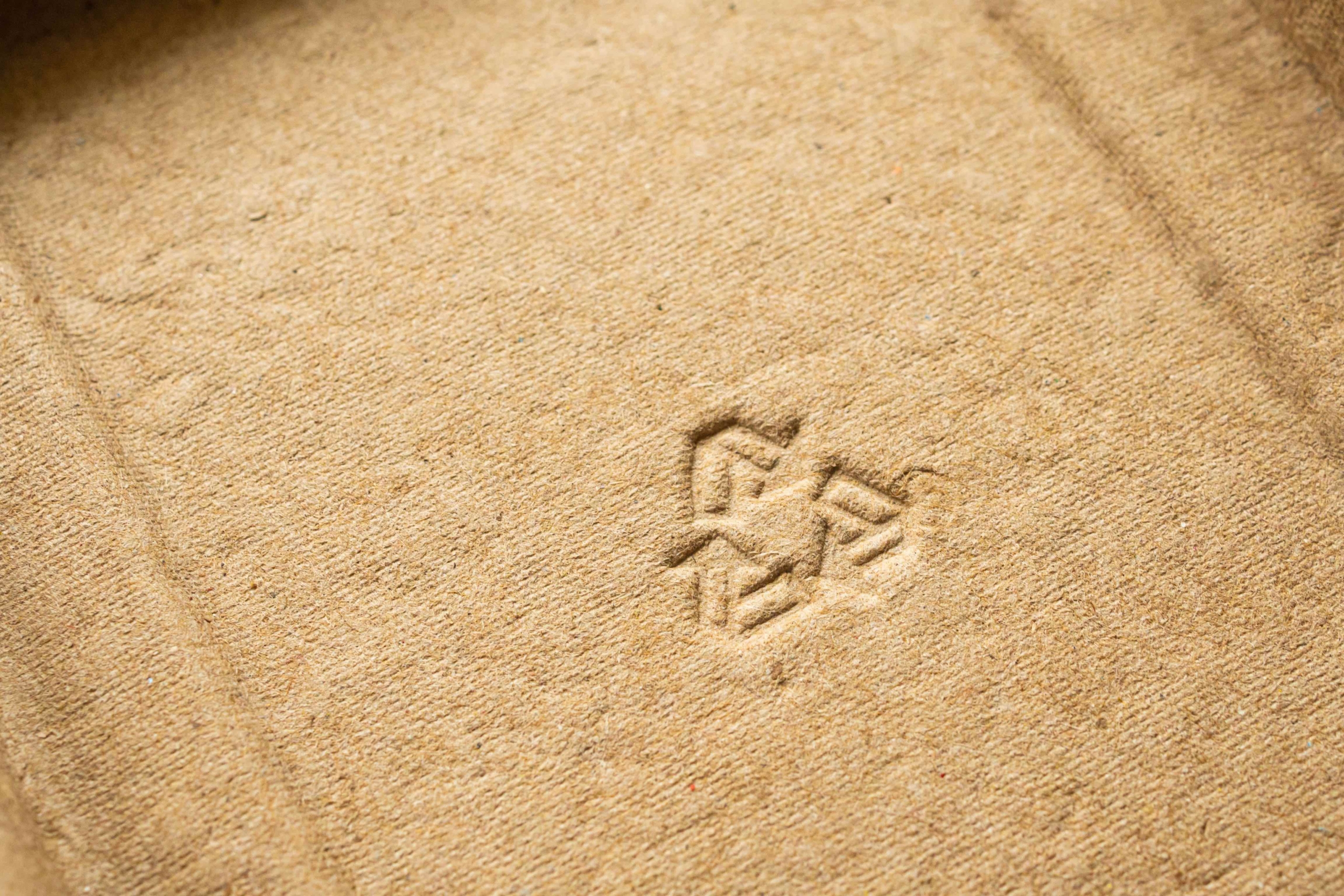
Elopak is member of EXTR:ACT, the European platform to increase the recycling of beverage cartons and similar fiber-based multi-material packaging. EXTR:ACT focuses on the technical process of multi-material recycling from start to finish and works with the entire value chain to ensure fiber based multi-material packaging is designed with the lifecycle in mind in order to be collected, sorted, recycled and reused in varying markets. Supported by experts in different working groups, EXTR:ACT is driving a large number of general and special projects in all stages of the value chain.
EXTR:ACT has the following key priorities:
• Demonstrate the recyclability of beverage cartons and paper-based multi-materials by developing an assessment protocol to define the criteria for packaging to enter the current beverage carton recycling stream
• Provide reliable facts & figures supporting the decision-making and advocacy activities of the industry
• Support the finding of technical solutions for recycling of beverage cartons and paper-based multi-material packaging
• Increase recycling of the PolyAl fraction of beverage cartons and paper-based multi-material packaging
• Increase quality and quantity of collection + sorting of beverage cartons and paper-based multi-material packaging
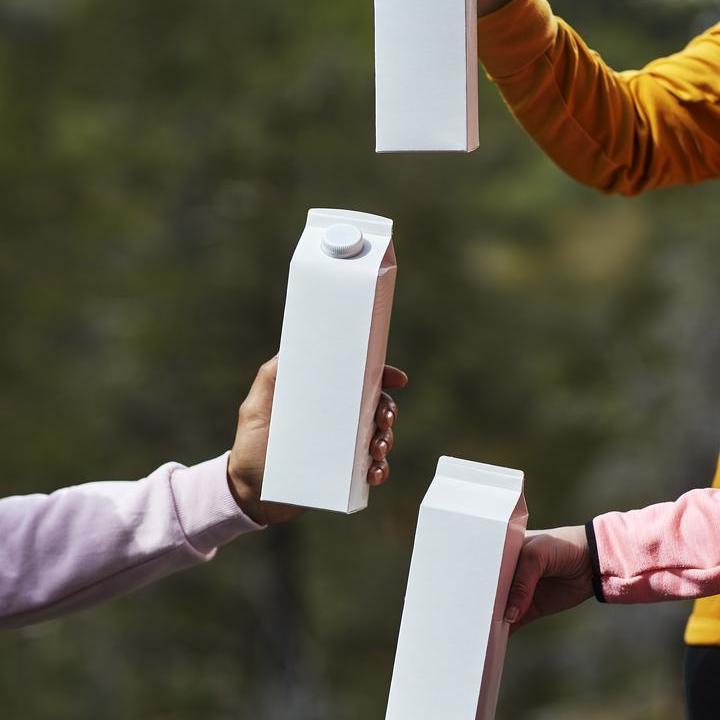
Elopak plays an active role in the Carton Council of North America and the Carton Council of Canada for advancing access, recyclability, labelling, and upcycling of gable top materials. Upcycling means reusing materials in such a way as to create a product of higher quality or value than the original. These associations are also critical for keeping us up-to-date with key legislations.
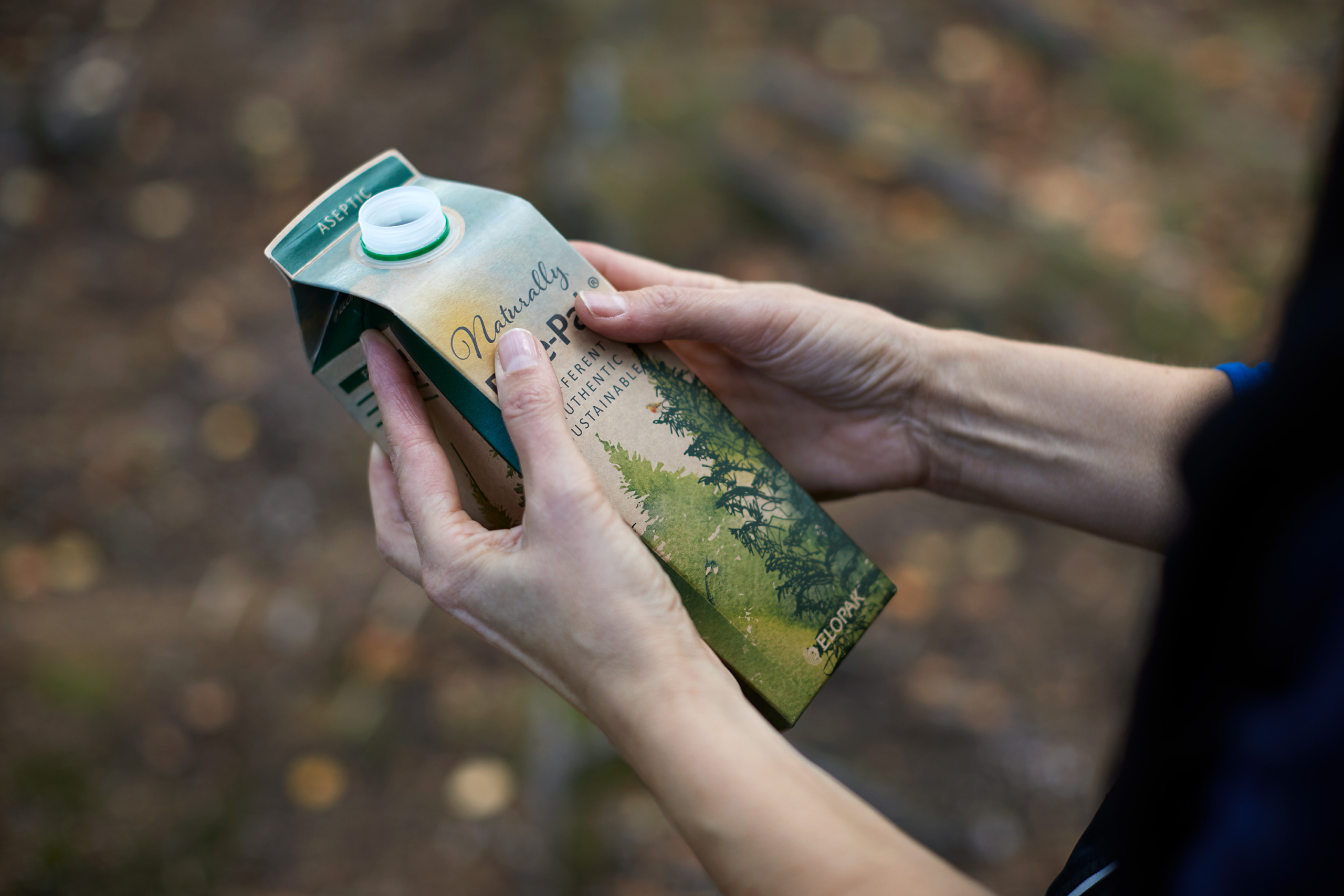
While still a new market for Elopak, our subsidiary GLS Elopak started mapping the local situation on recycling during 2022 with a focus on new governmental guidelines. We will register with the Plastic Waste Management (PWM) initiative and then join the local Action Alliance for Recycling of Beverage Cartons (AARC) for advice and collaboration with our industry peers. We aim to assist customers with the assessment of Extended Producer Responsibility (EPR) compliance, ensuring 100% of packaging is recycled. Currently, our factory-generated waste is handled by an external agency.
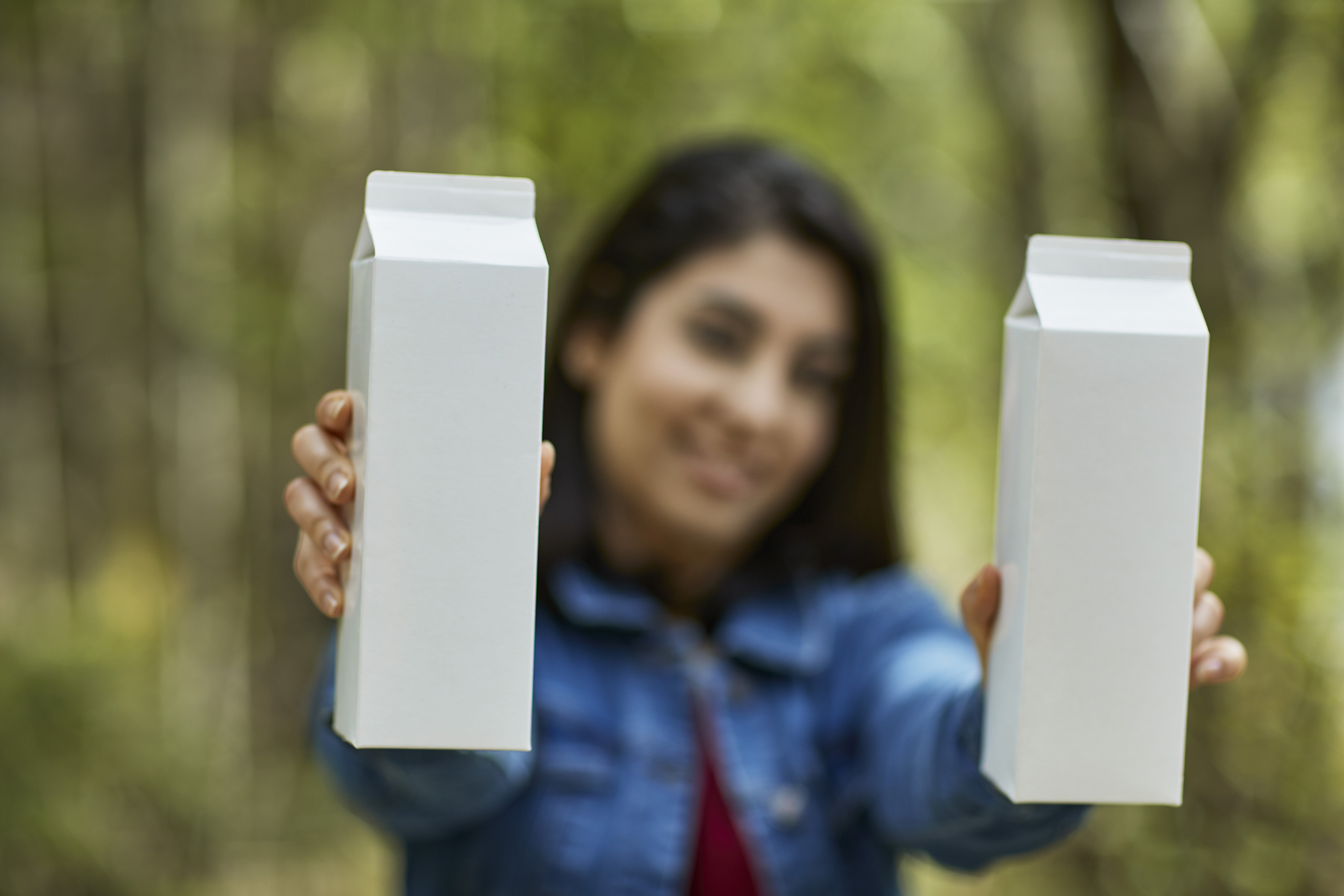
Performance
The map below shows the current facilities recycling beverage cartons in Europe. About 20 paper mills across Europe recycle all currently collected beverage cartons, while there are 4 initiatives recycling the non-paper fraction.
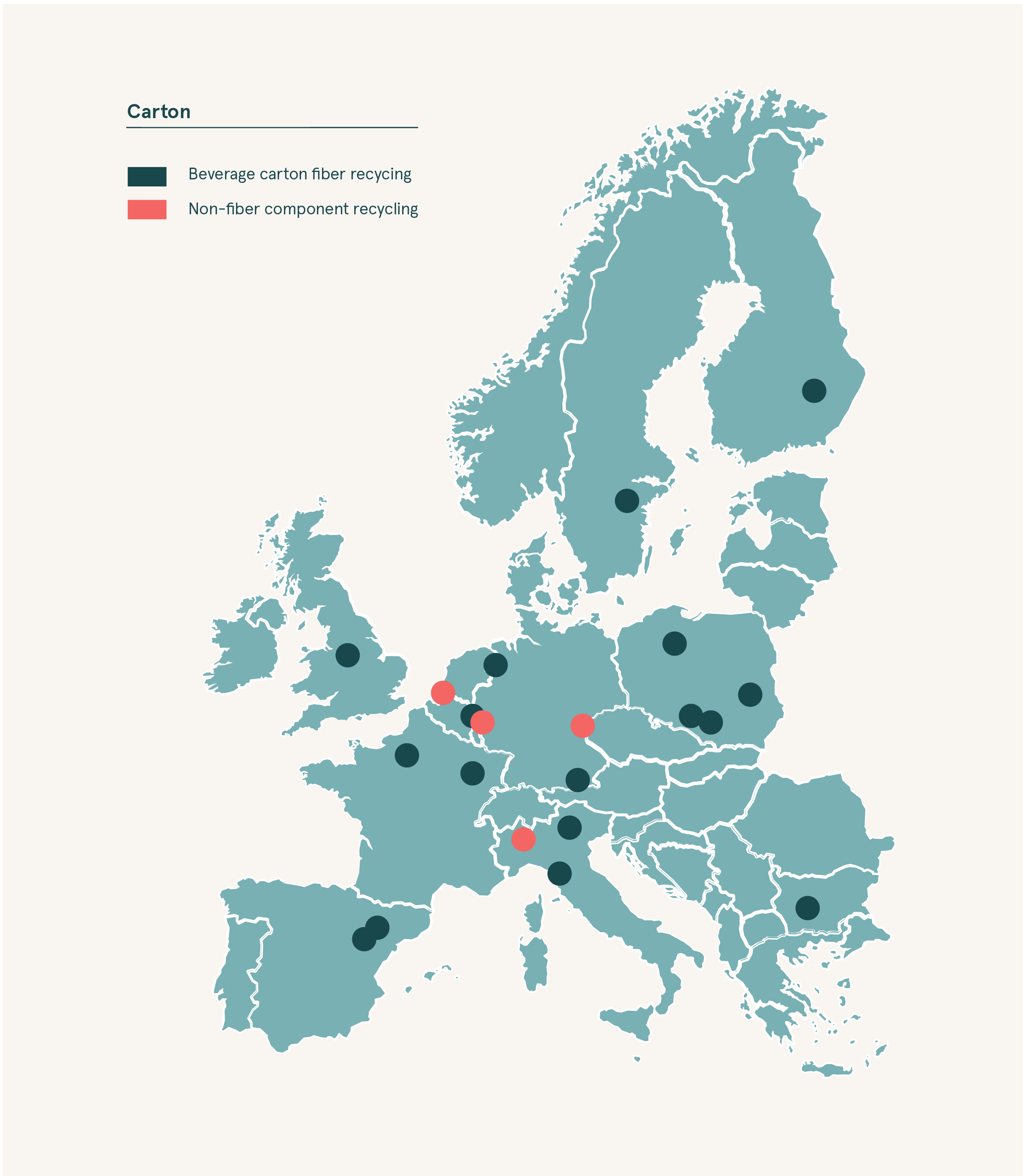
60% of households in the US and 90% of households in Canada have access to beverage carton collection, which is crucial to ensure efficient recycling can be carried out. Recycling of beverage cartons in Europe (EU-27 + UK) has steadily increased over recent decades. In 2019, the carton recycling rate in the EU was 51% (using applicable calculation method at the time). Since 2020, the European Commission has introduced a new calculation method for the recycling rates. It requires deduction of material not recycled, of moisture above natural humidity as well as contaminants and product residues.
Although Elopak lists recycling as a KPI, it is not possible to report on more recent recycling rates for beverage cartons, as EU Member States need more time to adapt to the new reporting method on recycling rates. We are confident that the recycling rate of beverage cartons will continue to increase thanks to both the new requirement under EU waste legislation to separately collect all packaging materials for recycling and the numerous initiatives of our industry. We will report on the recycling rates as soon as the updated and verified information is available.
Moving forward
With changing EU regulations and operations in new markets, we aim to further strengthen our circularity approach during 2023. We will continue our product development initiatives to ensure we produce cartons that are recyclable in all markets where we operate, and roll out these developments in the market. Through our industry associations in various markets, we work with regional and local legislators to ensure beverage cartons and fiber-based packaging materials are collected, sorted and recycled in our relevant markets.
More projects are in the pipeline which will enable a progressive increase in PolyAl and fiber recycling over the coming years (see below). The economic viability of beverage carton recycling is demonstrated via the current projects and the ongoing investments being made into fiber and PolyAl recycling.
Recycling capacity in Europe
In 2022 the installed paper fibre recycling capacity was 600 000 tonnes. This capacity will be expanded by 100 000 tonnes in the coming years (graph to the left). The installed PolyAl recycling capacity was 60 000 tonnes in 2022. Over the next three years, this capacity will increase by 100 000 tonnes (graph to the right).
Source: ACE recycling brochure
Read the ACE recycling brochure